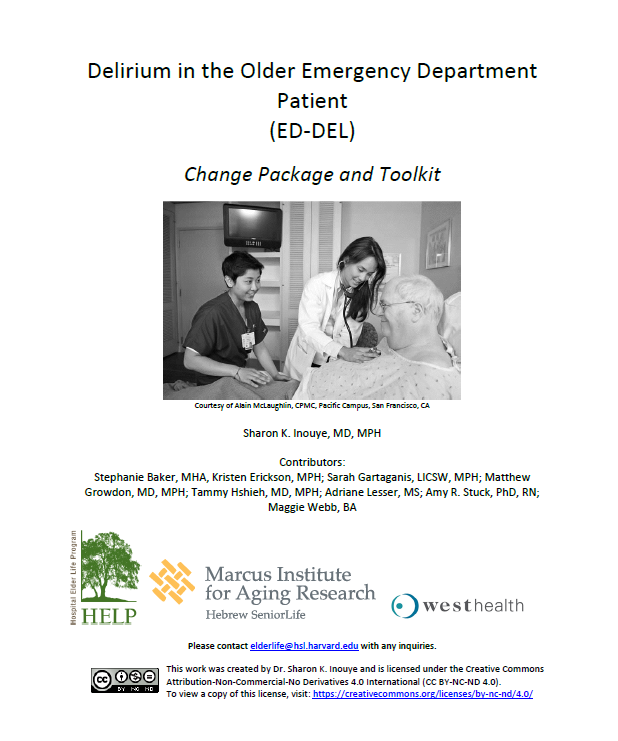
Delirium (also referred to as acute brain failure) is a neurologic emergency characterized by an acute decline in cognitive functioning. It is common and often the only presenting symptom of serious, even fatal, medical conditions, especially among older adults. It is a presenting condition for up to 30% of older adults in the emergency department (ED) (Gower 2012) and costs over $164 billion
(2011 USD) per year in the United States (Oh 2017). Only 24-35% of delirium cases are recognized, and nearly half of patients are discharged with little consideration of the seriousness of the delirium (Gower 2012), which can lead to substantially increased mortality during the 6 months following ED discharge, 37% vs. 14% (Han 2010, Kakuma 2003). Importantly, delirium prolongs ED length of stay, and hospital stay by a median of 2 days (Kennedy 2014
This Change Package and Toolkit were created by Dr. Inouye and staff at the Marcus Institute of Aging Research and the Hospital Elder Life Program, with assistance from the Gary and Mary West Health Institute, as part of a research project to improve delirium recognition, prevention, and management in the ED setting and to pilot test the Change Package and Toolkit in three EDs. The purpose of this Change Package and Toolkit is to provide a structured approach, change strategies, resources, and a step-by-step guide to help you set up a Delirium Program in your ED.

